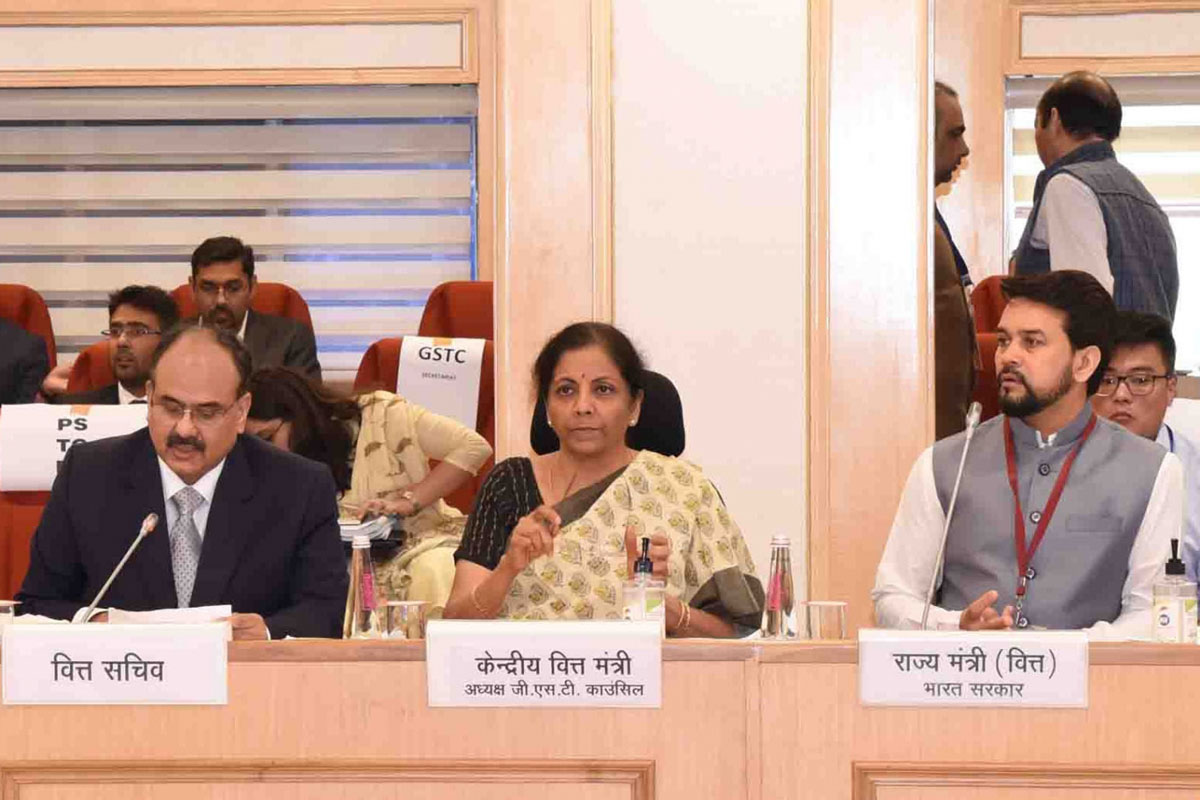The 40th meeting of the GST Council between finance minister Nirmala Sitharaman and her state counterparts scheduled to be held via video conferencing on Friday will be of great significance in view of the circumstances under which it is taking place.
The council will have to take difficult decisions to keep the economy running. While funds are necessary as the government’s coffers are empty with almost no collections in recent months, the demand for goods and services has hit rock bottom following the lockdown leaving no room to raise GST rates.
Advertisement
The finance ministry has already indicated that it is not in favour of increasing GST rates on even non-essential items despite poor revenue collections due to the nationwide lockdown to contain the spread of Covid-19. It had proposed rationalisation of taxes on many items at the Council’s last meeting on 14 March.
With the extended deadline for filing returns and dismal collections because of the lockdowns, the government has already refrained from releasing monthly GST collection figures for April and May. However, states will have to be paid their compensations for the revenue loss due to GST implementation.
The Centre had guaranteed to compensate states for any loss of revenue for five years after GST implementation from 1 July 2017, and this commitment will have to be met, especially now when states face distress because their revenues are squeezed.
Raising funds from the market may be the only way to resolve the current crisis. The finance minister had already mentioned this at the council’s previous meeting. She had said that the Centre would look into the legality of the GST Council resorting to market borrowings to take care of the states’ compensation requirements.
It is expected that the legal issues have by now been sorted out and that a decision will be taken at the meeting on Friday. West Bengal has already demanded that the Centre should transfer the state’s pending dues immediately.
The state has claimed it has received only an insignificant amount so far. Some other opposition- ruled states have gone as far as to claim an extension of the GST compensation for two years beyond 2022 to overcome the financial crisis they have faced following the Covid-19 outbreak.
Several state finance ministers through a video conference have already discussed the post-Covid economic situation and underlined the need for some form of aid especially for the MSME (micro, small and medium enterprises) sector which was hit hard by the pandemic and the subsequent lockdowns.
Relief for the services sector was also sought. Thus the only option seems to be to resort to market borrowing to raise funds for paying the states’ dues.









